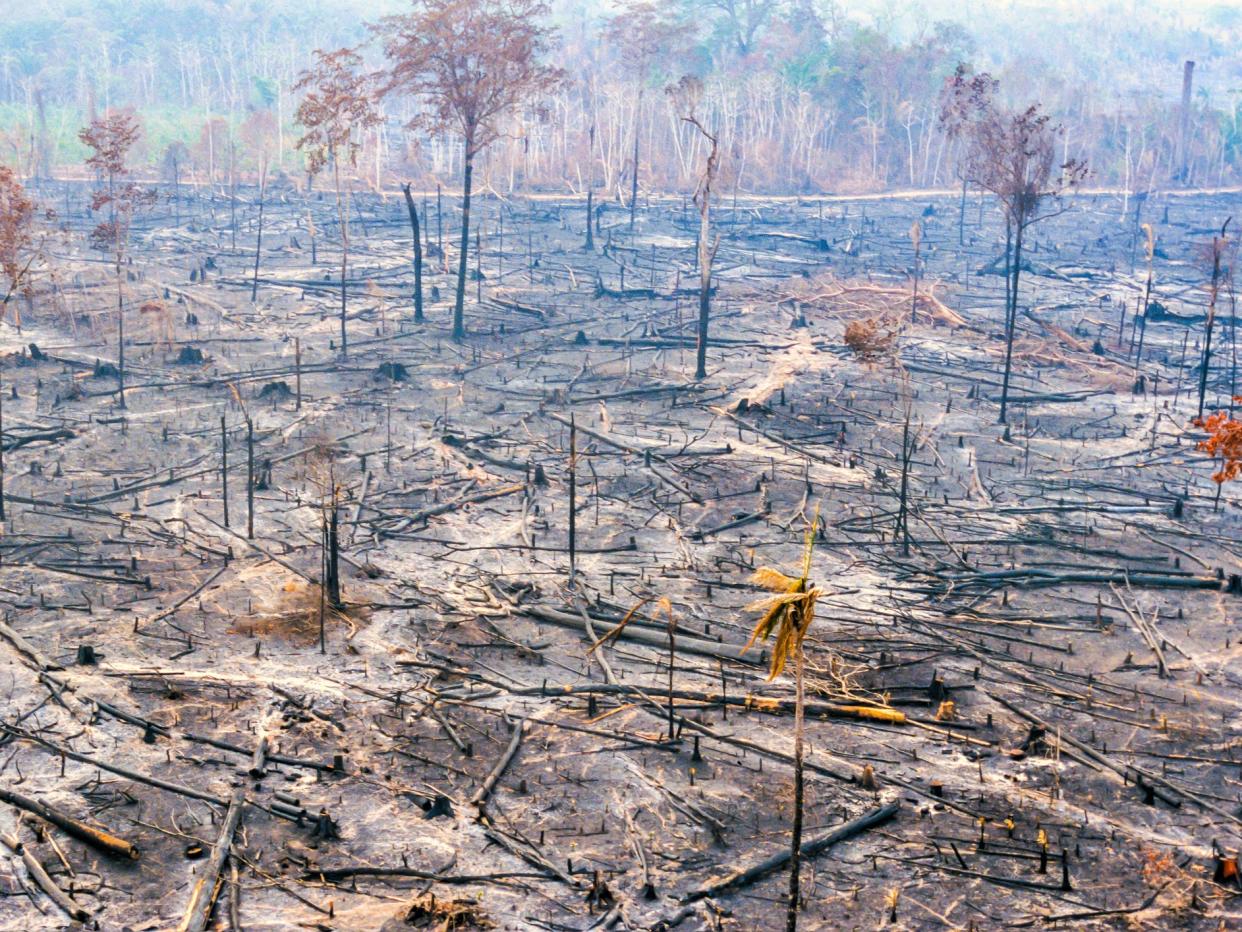Biodiversity crisis: US, China, Australia and Brazil refuse to sign pledge to reverse damage to natural world

While 64 countries have signed a global pledge aimed at halting the catastrophic decline of biodiversity, several major nations remain conspicuous in their refusal to work together for the Paris agreement style global commitment to reduce humanity’s impact on the natural world.
These include Australia, Russia, the US and China, whose governments all control vast tracts of land and sea.
Other notable absences were Brazil and Indonesia - two hotspots of major deforestation.
Scores of countries have joined the European Union in pledging to protect 30 per cent of their land and seas by 2030 in a huge effort to highlight the rate of biodiversity loss and generate funding to help address the situation.
The initiative aims to build global support for a broader agreement on how to tackle the biodiversity crisis ahead of a UN summit.
With the twin crises of climate change and wildlife loss accelerating, leaders are trying to build momentum ahead of the meeting in Kunming, China, in May, where nearly 200 countries will negotiate a new agreement on protecting nature.
The pledge acknowledges “we are in a state of planetary emergency”, due to the relentless pressure from humanity on natural resources.
“Science clearly shows that biodiversity loss, land and ocean degradation, pollution, resource depletion and climate change are accelerating at an unprecedented rate. This acceleration is causing irreversible harm to our life support systems and aggravating poverty and inequalities as well as hunger and malnutrition.”
But the sense of urgency in tackling the crisis has not been universal.
In comments to the United Nations this week, Brazil’s president Jair Bolsonaro said the country’s agricultural business were already subject to “the best environmental legislation on the planet”, and said: “we are leaders when it comes to the conservation of tropical rainforests.”
He also claimed Brazilians were “the victims of a most brutal disinformation campaign about the Amazon and the Brazillian wetlands”.
He said: “The Brazilian Amazon is known to be extremely rich - that explains the support given by international institutions to this disinformation campaign anchored to shady interests and exploitative and unpatriotic Brazilian associations with the purpose of undermining the government and Brazil itself.”
Speaking about the appalling fires which are at the greatest level in at least 10 years, Mr Bolsonaro claimed: “The fires practically occur in the same places, on the east side of the forest, where peasants and Indians burn their fields in already deforested areas.”
Australian prime minister Scott Morrison said he was not signing the country up to the commitments to reverse biodiversity loss because the plan was inconsistent with existing policy.
A spokesperson for Mr Scott told Australia’s SBS News the federal government had already agreed to “ambitious and achievable” goals under the Paris climate agreement and is aiming to reach net-zero carbon emissions “as soon as possible”.
“We will not agree to other targets unless we can tell the Australian people what they will cost to achieve, and how we will achieve it,” the spokesperson said.
Mr Morrison also pointed out the government is investing AUS$18bn (£10bn) in green energy by 2030 as part of its technology investment roadmap.
Meanwhile nobody from the US government is scheduled to address Wednesday’s virtual summit at all, despite it being hosted from New York.
Though China has not signed the pledge, there has been the suggestion that President Xi Jinping could make a surprise commitment during his speech at the summit’s opening.
This would come just days after just he announced China was now seeking to hit net-zero emissions by 2060.
Read more
Biodiversity crisis: World leaders pledge to ‘reverse’ destruction of natural world by 2030
World fails to hit all targets to halt biodiversity collapse, UN reports
The food we produce is killing us and decimating biodiversity – a change has to be made


